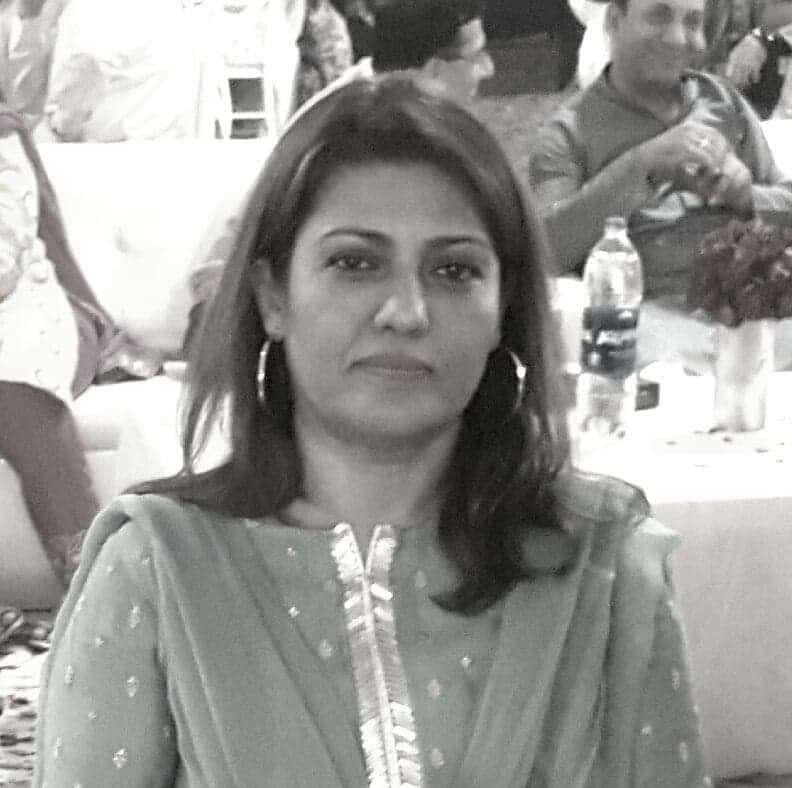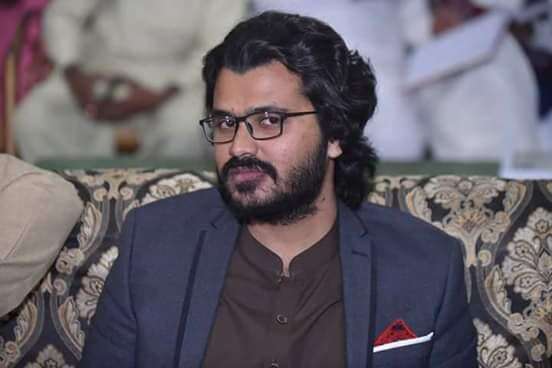
Naveed Hussain Sandeelo
Through this article, I am getting to produce my very own point of view that’s what sort of education system should be introduced in the schools and academies of our country. Which kind of teaching methods are more appropriate and getting involves students in the process of learning? How can they develop their intelligence, and become capable to easily resolve peculiar problems of their private life? Is this prevalent education system satisfactory and competent in bringing up our youth before the challenges and needs of the business-oriented contemporary world? Along with these essential matters, I shall also discuss the basic issue that what sort of knowledge and education systems are more edifying and enlightening to a person, and which are the most ambiguous to peril their minds. For understanding its aims and objectives smoothly I’ve divided my discourse as under:
Knowledge is based on universal and eternal truths
Knowledge kindles light in one’s dark chamber of an ignorant mind. It is more powerful than a wealthy person’s treasures of hoarded money. Knowledge is bliss, ignorance is a curse, it is more beautiful, joyful which brings more wonder and joy in life. One can become more ecstatic and joyful. Though some knowledge is thought relative all knowledge is not relative. Knowledge is often a universal which attempts to succeed at a high level of understanding and tends to go beyond merely opinions and statements. The knowledge problem leads to all other sorts of problems. It’s interesting particularly in finding a way for arriving at real knowledge as different from simple opinion. Amid the diversity of thought, great philosophers had tried to aim to get that which is common to all or any, a ground which can’t be disputed. It had been their great desire to offer a reasonably complete theory of knowledge. For them, sense-perception couldn’t give genuine knowledge. According to them, man should go beyond the limitations of senses to ideas that are produced neither by experience nor dependent upon experience. The soul, it is thought, while coming into the world brings within itself real sort of ideas, which are considered as genuine. Carrying this line of reasoning further we hold that although our experiential world is the genuine world, true knowledge depends on knowing the causes or reasons of things. Our claim of saying that knowledge is universal is because all minds of ours are basically in nature identical and alike. They all have certain kinds of basic categories such as unity, plurality, totality, reality, and the like. All minds possess the same kind of equal common nature; all of our thinking is very considerably alike.
Commonly scientific knowledge is thought by itself is relative but science is not satisfied with this relative status given to her. It also aspires to be universal and absolute to overcome its relative nature. In this sense, we don’t hesitate to say that knowledge is only based on universal and eternal truths and is a continuous quest for truth and an attempt to ultimate reality. In this sense we can say that achieving knowledge is a continuous process; it is a struggle to fashion theory in the context of experiment and thought. There is no station of learning, nor any stop to its attempts and endeavors. One can learn all the life from cradle to grave. There is no episode, no gap, and no gulf. As life is constantly flowing it moves on and on towards an unending journey one gets new experiences. Every step offers its cognition. From mathematics to music, philosophy, literature, painting, economics, physics, biology, chemistry, history, medicine, engineering, anthropology, and like all sciences play a pivotal and essential part in human learning and educating him.
Purpose of education
Education leads man to enlightenment and wisdom. The aim of education is aware of students’ love for new learning and to foster a real interest in temporary sciences, history, economics, mathematics, and technical skills. Education means the process of learning which brings individual as well as social change. Its basic function should be to spread philosophical-scientific thoughts among the students. Samuel Enoch, writing on John Dewy gives his reference of philosophy of education that “Nothing is more important than in remolding a society. If a man is a creature of habit, education should provide the conditions for developing the most useful and creative habits. The spirit of education should be experimental because the mind is fundamentally a problem-solving instrument. Like science, education should recognize the intimate connection between the action and think, between experiment and reflection.” (Stumpf, 1988, P.425) Including this, the main function of education is to make students confident, self-reliant, and self-sufficient in the order they may become capable to face the challenges in every walk of life. It is to create some clear ideas in students’ minds that they can easily know a lot of things which will make them more wise and appreciative of the achievements of the human race. According to Brezinka, “Education is perceived as a shaping of the soul, as an art which shapes a person in so that receives the proper form.” (Brezinka, 1992, P. 39)
It is to develop critical thinking skills and methods of inquiry in them how to probe the peculiar problems and matter of things. They should be taught that through the use of the tools of rationality and logico-analysis they can secure their quest for truth from any sort of ambiguous conventional thoughts. They should be taught that their thinking should go beyond the limited ideas of regionalism, color, race, and national boundaries, and they must enjoy all blessings of life equally. They should keep aloof from any sort of prejudices that are bound in the narrow streets of nationalism, religion, creed, and region. They should be imparted to strictly believe that all humans are created from one breath of life. Hence, students must be prepared as competent and skilled individuals for the competitive global economy. They are future builders and makers of our next generations, where flowers and fruits of civilization will flourish in abundance.
The peculiar purpose of schools
Schools are considered as organized institutions, whose primary responsibility is to transmit to the next generations, the knowledge, and wisdom of all the prior generations. The primary function of education institutions and academies is to maintain the basic elements of human culture. It is the essential duty of school they must provide students such kind of learning they need to play role in liberal arts and sciences to introduce a democratic and liberal society. Not succeeding to transform these needed subjects and skills puts nation and culture in peril. This fundamental learning includes the art of reading and writing, arithmetic, and the subjects of history, biography, mathematics, science, language, and literature. The fundamental purpose of schools is to teach their students what is required for their individual development as well as in the interest of society. But here the case is different. The emphasis here is on what the governments think is best; not necessarily what is best for the students.
Schools do teach too much and overburdening the students with huge information and knowledge. They don’t prepare them to seek wisdom and real knowledge. This is literally concerning quantity. They don’t focus on high quality and essentially required a galaxy of great ideas. Many schools in our country are not concentrating and aspiring students for creativity, but in contrast, they are fully focusing on preparing and emphasizing them to memorize huge kinds of information which is not best for them. In a real sense, learning is doing, doing for the best of life. In the world of work, what is often called into play is the person’s ability to examine situations and make quick decisions. But here the student is not prepared for. During their career many look with hatred at their bosses and superiors for exact guidance. It takes time to get rid of that they have to be properly guided on what to do. One of the glaring examples is the subject of economics. All students almost are overflowing at the end of the course that they have scholarship over the subject and know everything about it. They are fully informed about all the theories of economics and their utility at the grand international level. But if any ask them for applying all that theoretical knowledge to open a small business, they do not even know the starting point. But on the contrary, we have quite often observed the unschooled persons, using their unlettered mind alone do well in business – and they know nothing about the economic theories of Adam Smith and David Ricardo.
What should the curriculum contain?
The curriculum is the central guide for all educators as to what is essential for teaching and learning. It includes some basic skills, essential subject matter, history, mathematics, language, science, and literacy in computer science. Every student has excess to the rigorous academic experience. The curriculum should contain practical knowledge and it should include basic learning, skills, and subjects to make students capable of their practical life. Moreover, while structuring a curriculum strictly requires careful attention and teaching must follow certain efficiency. The prevalent method of only depending on textbooks teaches students nothing except depending on others. The role of textbooks is essential and they have a very important function in the process of teaching and learning. What we educate in schools is based on the nature of texts that how are these developed and what they tell something about the under learning subjects. Textbooks are the greatest tools to keep education within boundaries. Students relying only on textbooks and merely memorizing to pass examinations, learn only what the authorities in them too. For example, the writer who went to school during the colonial period learned what a great man Robert Clive, of India, was. That was the British version. The Indian history books write volumes about Clive’s villainy in India. What is treacherous and traitors of time are officially taught Valiants and heroes of history. This is all of the other sides of education which is not based on facts and figures; this has always jeopardized young minds.
A more pragmatic and helpful method, to some extent, perhaps would be scientific. They must be taught how to think and reason themselves. This means that teachers teach them some necessary tactics and skills, let them learn the rest of best by themselves. There should be included great books, classics, and critical dialogues to develop critical thinking. Through classical books, they will enrich their consummate thought and different kind of approaches towards things.
Relationship between teachers and students
There are two sacred and great relations on the earth, one is of a teacher and the other is of the student, one is teaching other is learning, learning the ups and downs, pros and cons, beauties and benedictions, truth and morals to make oneself a complete man. In our Indian society, the status of the teacher is like Guru (a respected trained master) whereas the student is considered a Chelo (an obedient disciple) who always sits near the feet of a master for learning new things and art of how to follow a complete life. Teachers are also seen as spiritually respected parents who carefully guide their students and treat them as their children. What are the requirements of an ideal teacher he must know one’s profession thoroughly? He must know his subject far beyond the point he intends to teach. He needs to be an expert. For example, if he is teaching philosophy, he shall know all the dialogues of Plato – or at least most of them, rather than just the dialogue he is teaching. He can then makes cross-references and answer all the questions that arise in the minds of his students.
The teacher must promote the love of his subject among his students. This he will do by first of all loving the subject himself. His enthusiasm and love for his subjects catch on with his students and if they learn to love a subject, they can learn it better. A bad teacher, usually by his lack of enthusiasm and interest, will cause his subject to be hated. A teacher has the responsibility to develop the characters of the students in his life. From time immemorial, teachers have been pillars of society. Like great Socrates, it is our teachers’ moral responsibility to construct in students great ideas. Mr. Allan Orenstein and Daniel Levine say that “To empower their student’s teachers must first empower themselves as professional educators.” (Ornstein, Allan C., Levine, Daniel U., 2007 P.179)
A teacher should create awareness in each student of ultimate responsibility for his or her education and self-definition. For Mayer, “Teacher shouldn’t be given corporal punishment and do dictatorial control this act of teacher prevents real learning and makes the student rebellious.” (Mayer, 1951, P. 548)
References and Citations
Brezinka, W. (1992, P. 39). Philosophy of Educational Knowledge. Springer-Science+Busness Media, B.V.
Mayer, F. (1951, P. 548). A History of Modern Philosophy. New York: American Book Company.
Ornstein, Allan C., Levine, Daniel U. (2007 P.179). Foundations of education (Tenth Edition). Wadsworth Publication.
Stumpf, S. E. (1988, P.425). Philosophy History and Problems. Mc Graw-Hill Book Company.















